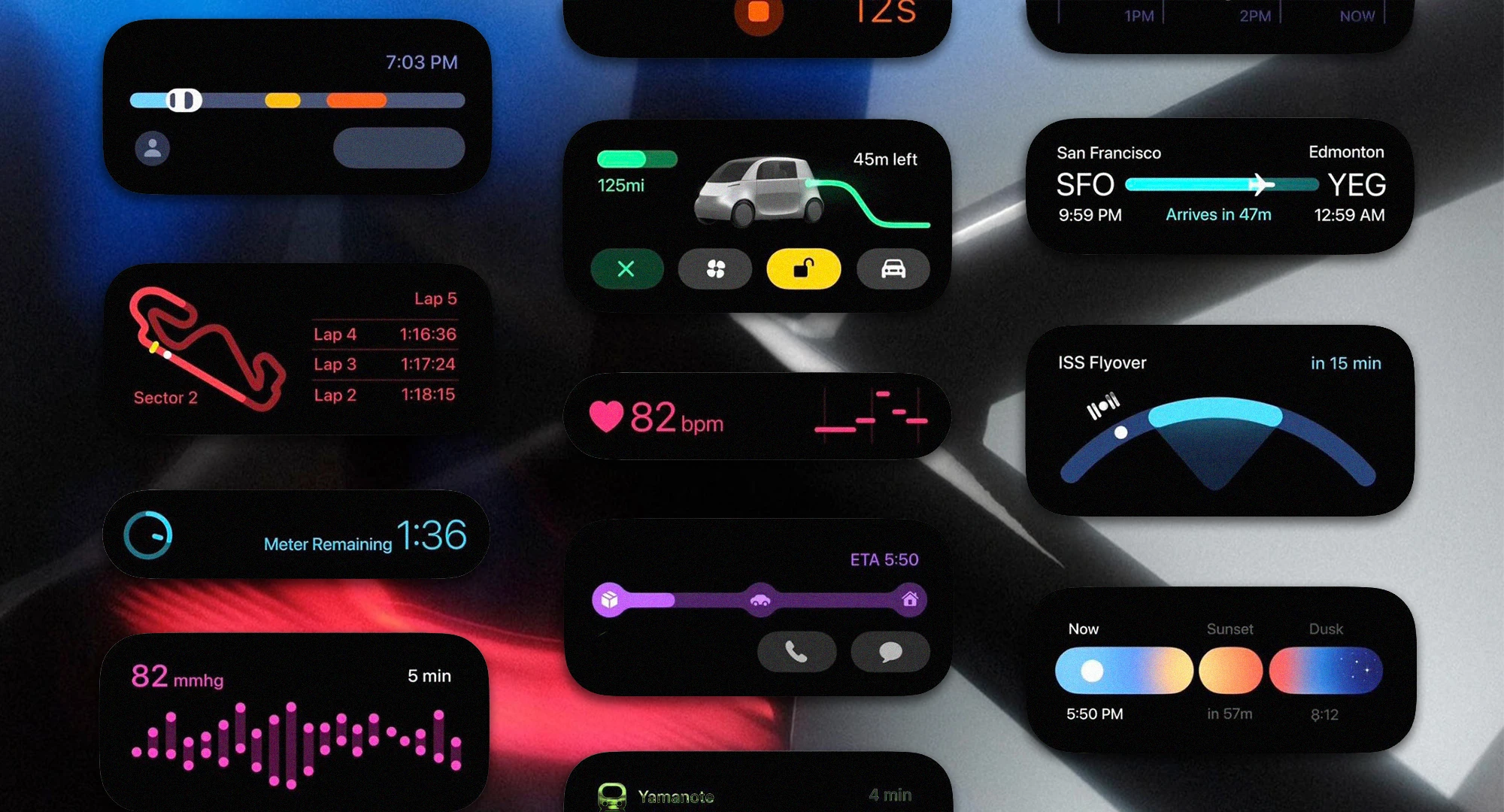
Top Healthcare Marketing Agencies to Work With - February 2026
Introduction
Healthcare marketing has rapidly evolved over the past year, shaped by digital transformation, patient expectations, and competitive pressure. In February 2026, choosing the right healthcare marketing agencies is more important than ever for brands looking to stand out and grow effectively.
While many companies are expanding their in-house teams, working with healthcare marketing agencies remains essential for accessing specialized expertise, managing internal bandwidth limits, and controlling long-term costs. In the sections below, we’ll uncover the top 10 healthcare marketing agencies helping organizations lead in today’s fast-changing market.
Top 10 Healthcare Marketing Agencies
1. G & Co.
G & Co. is a leading healthcare marketing agency known for helping enterprise healthcare brands modernize marketing strategies, improve patient experiences, and build measurable growth across digital channels.
As one of the best healthcare marketing agencies, G & Co. partners with healthcare companies and organizations to deliver brand strategy, omnichannel marketing, digital transformation, and creative execution backed by research and data. G & Co. has served enterprise-level clients across providers, payers, and digital health, and is recognized as a healthcare marketing consulting firm that brings both strategic insight and high-quality execution to each engagement.
G & Co. is a minority business enterprise (MBE), as certified by the National Minority Supplier Development Council (NMSDC). If diversity inclusion is a part of your supplier process, contact us—we may be a great fit for your enterprise.
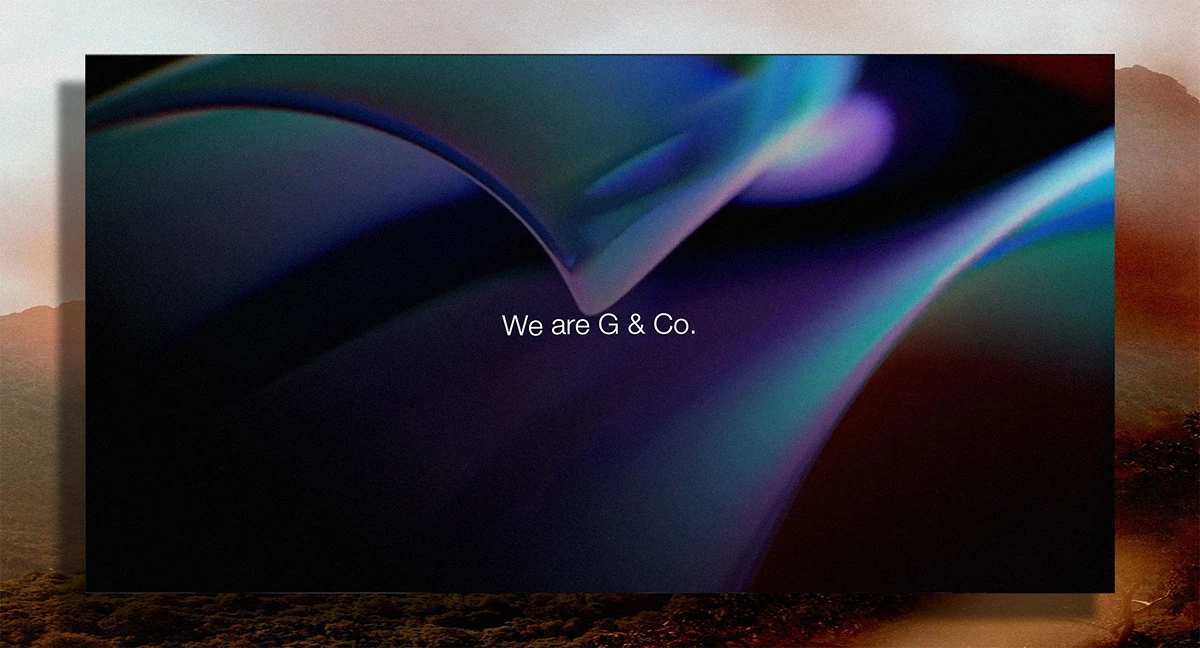
2. Icovy
Icovy is a healthcare marketing agency that focuses on branding, video storytelling, and email campaigns for medtech brands.
Specializing in creative content and campaign execution, Icovy helps medtech clients such as Poba Medical improve visibility and lead generation. As a healthcare marketing company, they combine healthcare-specific messaging with strong digital production to support startups and emerging companies bringing new medical technologies to market.
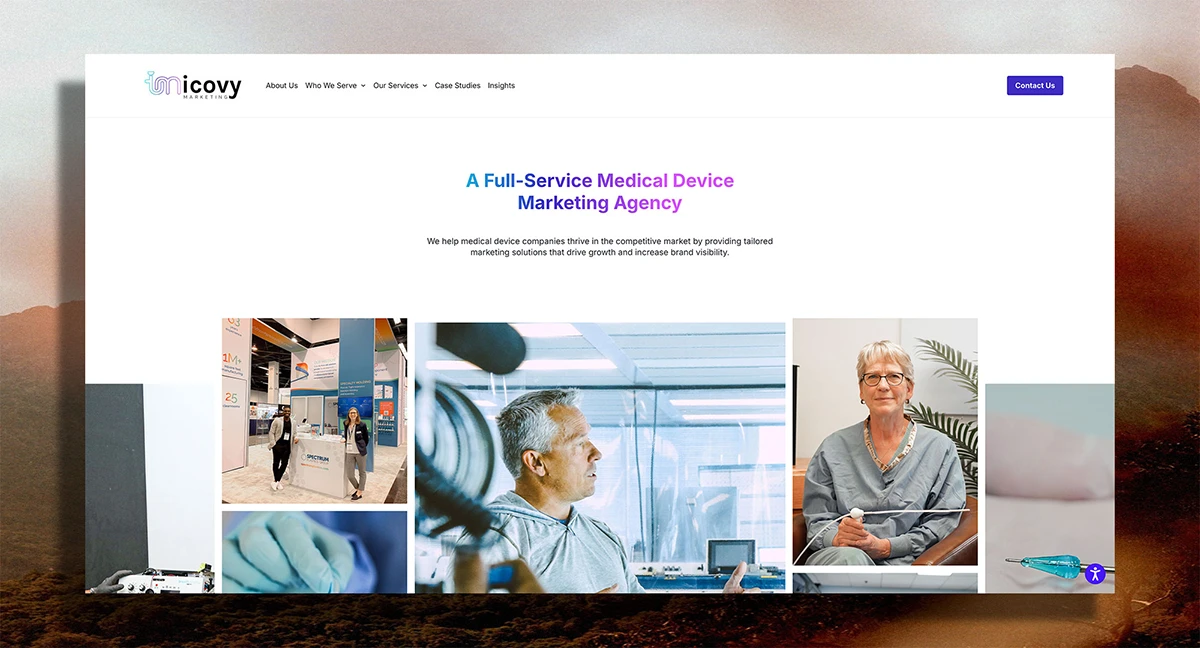
3. The ABM Agency
The ABM Agency is a healthcare marketing firm that uses omnichannel account-based marketing to target high-value prospects in medtech and healthcare services.
Working with healthcare organizations such as MedPost and Care Spot, The ABM Agency helps brands build personalized campaigns that connect with B2B buyers. As a top healthcare marketing agency for ABM, they offer strategy, media buying, and analytics with a strong focus on ROI and measurable outcomes.
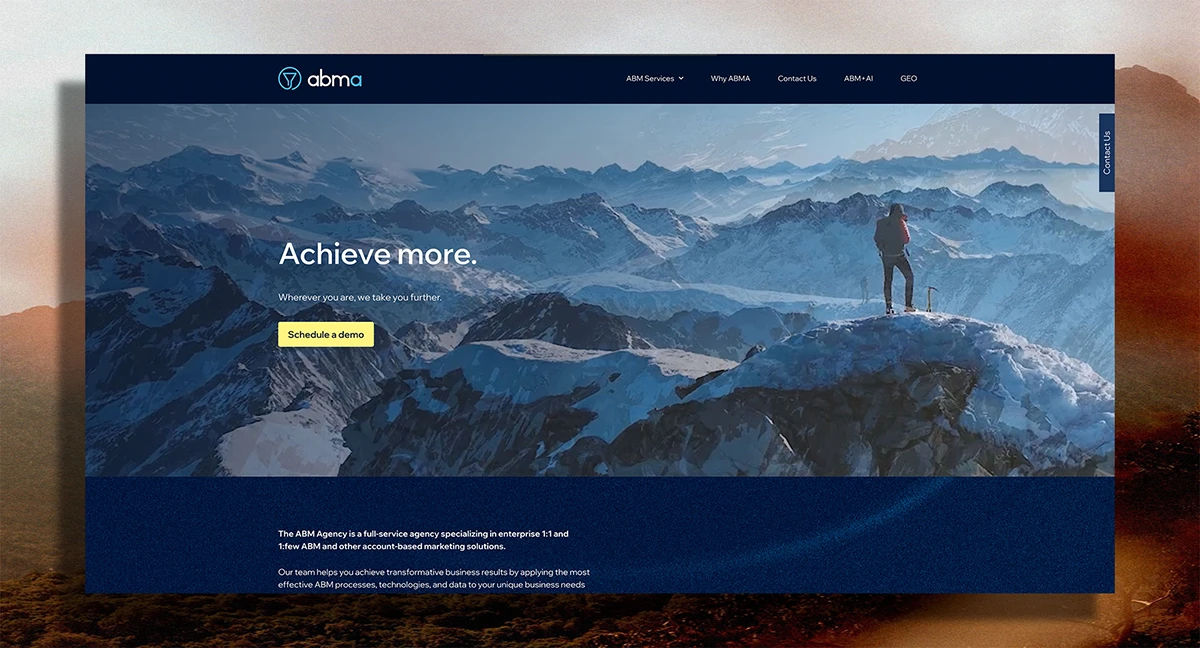
4. Parker White
Parker White is a branding-led healthcare marketing agency that builds market presence for medical and lifestyle health brands.
Founded in 1997, Parker White supports clients like Polaris and InTouch Health with strategic brand positioning, visual identity, and patient-centric messaging. Known as one of the best healthcare marketing companies for long-term brand development, the agency blends storytelling with strategic communications to help clients compete in crowded markets.
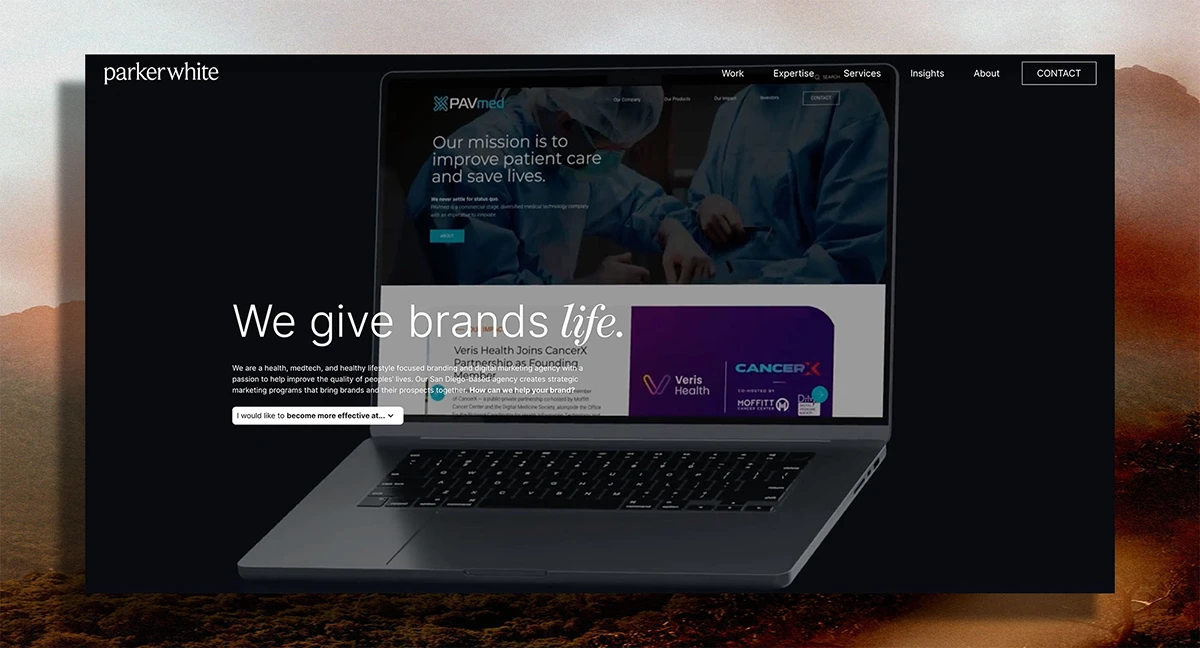
5. FEED. The Agency
FEED. The Agency is a boutique healthcare marketing agency that delivers branding, reputation management, and video production services.
With clients such as Brain & Spine Surgeons of New York and The Smile Center, FEED helps healthcare providers and specialty practices improve brand visibility and trust. As a healthcare marketing consulting firm, they focus on emotional storytelling and reputation strategies to reach both patients and referring providers.
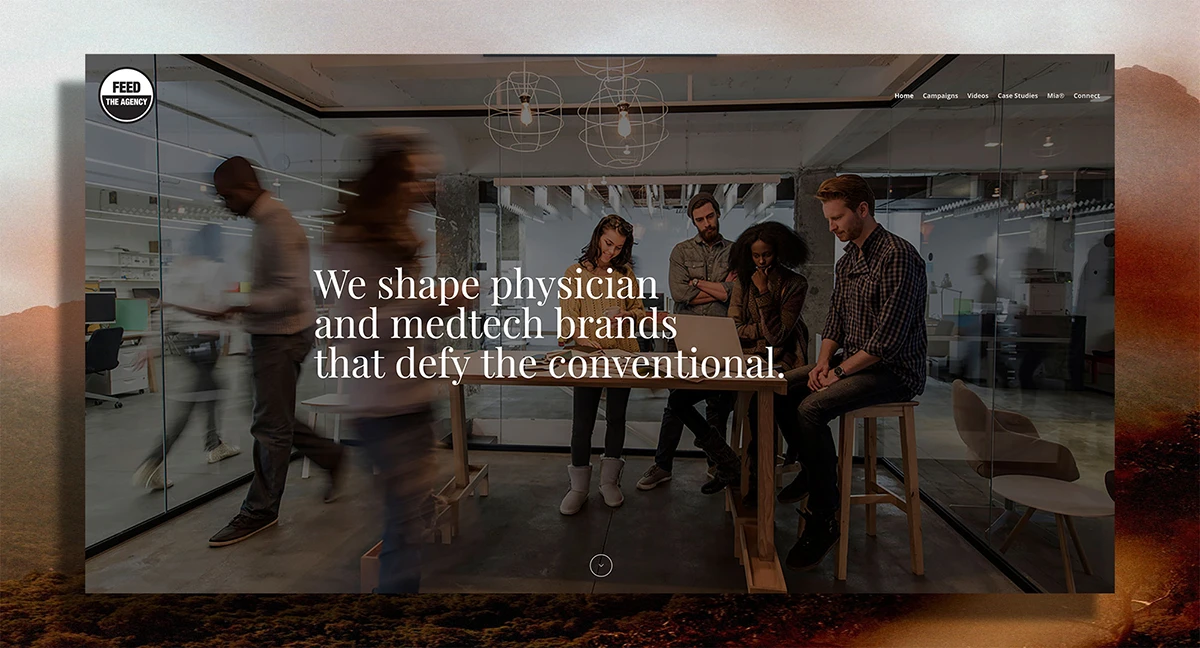
6. Cardinal Digital Marketing
Cardinal Digital Marketing is a digital-first healthcare marketing company focused on patient acquisition and performance marketing.
Serving clients such as North American Dental Group and Upperline Health, Cardinal offers services including PPC, SEO, and conversion rate optimization. As a marketing agency for healthcare companies, they specialize in growing multi-location practices through localized campaigns and analytics-driven strategy.
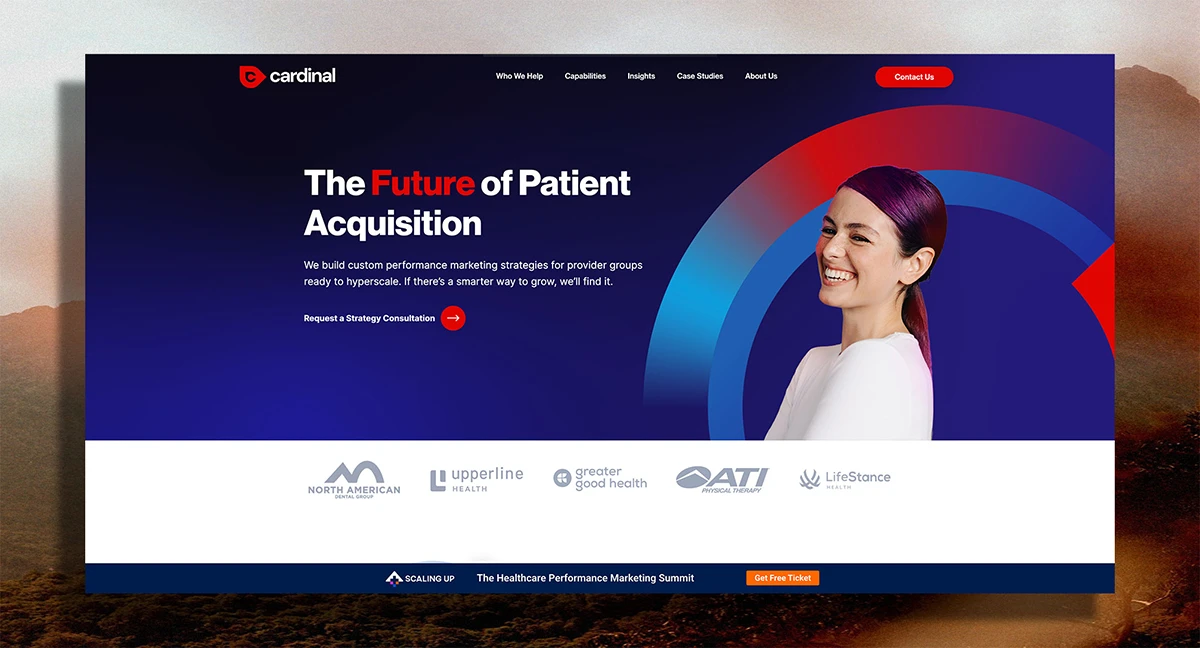
7. Digital Drew SEM
Digital Drew SEM is a healthcare marketing firm that provides paid search and lead generation services for providers and small health businesses.
Founded in 2017, the agency supports clients like Performance Health Partners by running highly targeted PPC campaigns. As a specialized healthcare marketing agency, they are known for producing fast, measurable results for healthcare organizations with limited internal bandwidth.
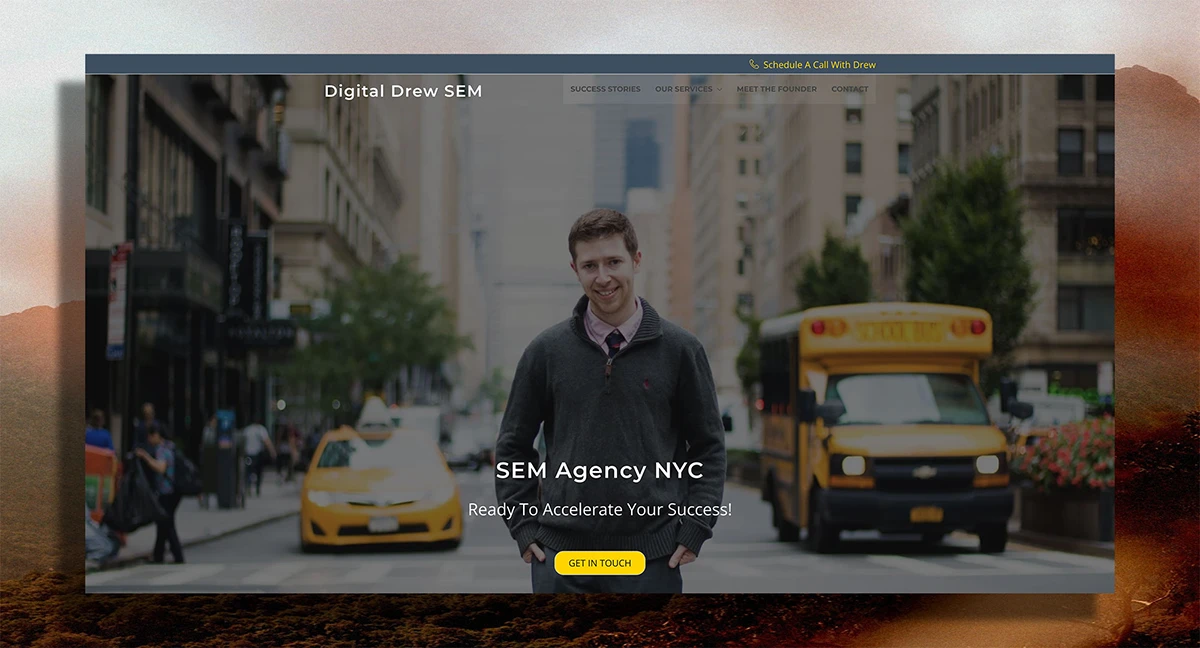
8. Distill Health
Distill Health is a healthcare marketing consulting firm that helps medtech startups develop strong brands and communication strategies before launching or raising capital.
Clients such as Theragen and Nuvara turn to Distill for naming, identity, messaging, and pitch decks. As a top healthcare marketing company for early-stage firms, Distill focuses on clear, strategic communication that bridges technical innovation with compelling positioning.
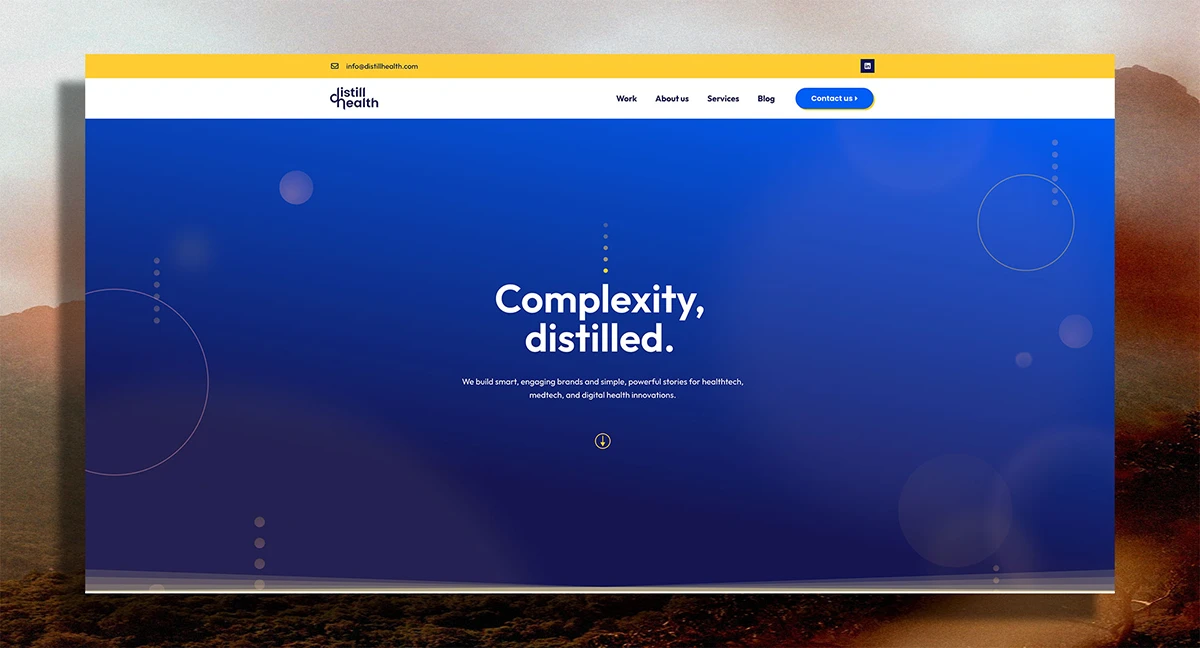
9. Precision Effect
Precision Effect is a healthcare marketing agency with decades of experience creating patient and physician campaigns for medical and life sciences brands.
They are known for building comprehensive branding and communications strategies that align across media, social, and sales enablement. As a long-standing healthcare marketing firm, Precision Effect helps companies craft campaigns that support product launches, awareness, and ongoing engagement.
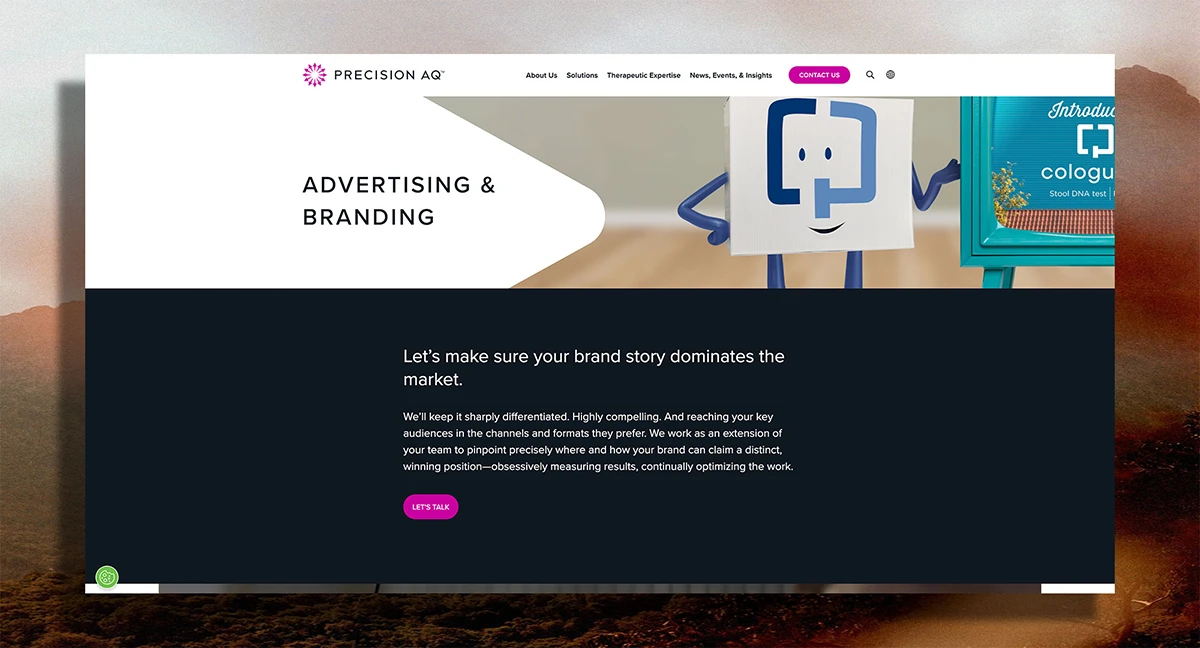
10. iBoost
iBoost is a healthcare marketing company that helps aesthetic and clinical providers increase patient volume through SEO and digital experience services.
With experience supporting practices like Laserlux Aesthetics and National Vascular Associates, iBoost offers services in web development, local SEO, and online scheduling optimization. As one of the best healthcare marketing agencies for small-to-mid-sized clinics, they specialize in visibility and patient flow improvement.
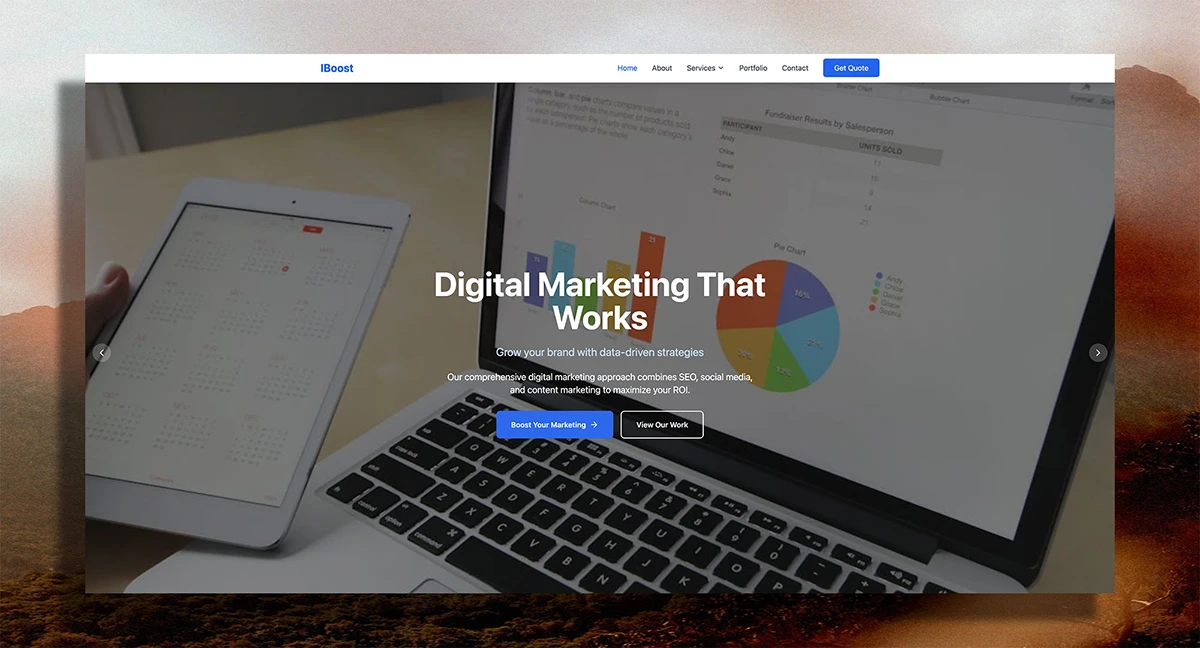
What Is Healthcare Marketing?
Healthcare marketing refers to the strategic process of promoting healthcare services, products, or organizations to targeted audiences, including patients, physicians, payers, and partners. It integrates market research, branding, digital communication, and data analytics to shape perceptions, drive patient acquisition, improve retention, and support organizational growth. Given the sector’s complexity and regulatory oversight, healthcare marketing requires tailored messaging that is both compliant and compelling—aligning with clinical accuracy while fostering trust and engagement across increasingly digital patient journeys.
How Does Healthcare Marketing Work?
Healthcare marketing operates by identifying audience segments—such as prospective patients, referring providers, or health plan members—and deploying targeted strategies to influence awareness, consideration, and decision-making. Campaigns are typically grounded in data and insights, combining digital channels like search, social, and email with offline strategies such as community outreach or provider marketing. The process includes message development, media planning, content creation, and performance measurement, all while adhering to HIPAA and industry-specific compliance standards. Success hinges on precision targeting, outcome tracking, and continuous optimization aligned with evolving consumer behaviors and market dynamics.
What Is a Healthcare Marketing Agency?
A healthcare marketing agency is a specialized firm that helps healthcare organizations develop and execute marketing strategies tailored to the industry’s regulatory, clinical, and consumer-specific demands. These agencies offer a suite of services including brand positioning, digital advertising, content development, patient engagement, and analytics—all designed to support measurable growth across complex stakeholder ecosystems. With expertise in navigating compliance requirements and patient privacy regulations, healthcare marketing agencies ensure campaigns are both effective and legally sound, enabling healthcare providers, payers, and life sciences companies to reach and retain key audiences in a competitive landscape.
When evaluating a healthcare marketing agency, it’s critical to understand the depth and range of capabilities it brings to the table. Unlike generalist firms, agencies that specialize in healthcare are equipped to navigate complex regulations, evolving patient expectations, and multi-stakeholder dynamics. This section outlines the key capabilities that set healthcare marketing agencies apart—demonstrating how they help healthcare organizations build trust, improve visibility, and drive meaningful engagement across highly specialized and regulated markets.
What Services Do Healthcare Marketing Agencies Provide?
Brand Strategy and Positioning
A healthcare marketing agency helps clients define and refine their brand identity to resonate with patients, providers, and payers. This includes crafting a compelling value proposition, developing a brand voice, and ensuring consistency across touchpoints. Agencies conduct market research, competitive analysis, and stakeholder interviews to position healthcare organizations clearly in their segment—whether it’s a hospital system, medtech company, or payer—ensuring differentiation in a crowded marketplace.
Digital Marketing and Patient Acquisition
Agencies drive measurable growth through digital marketing strategies tailored to the healthcare sector. This involves managing SEO, paid search, display advertising, and social media campaigns to attract and convert targeted patient populations. A healthcare marketing agency uses HIPAA-compliant platforms and audience targeting to ensure ads reach the right individuals at the right moment in their care journey, while continuously optimizing for performance and cost-efficiency.
Content Strategy and Development
Healthcare marketing agencies create targeted, medically accurate, and engaging content that supports both patient education and brand authority. This can include blog articles, physician bios, landing pages, explainer videos, and white papers tailored for different audience segments. Agencies ensure all content aligns with regulatory standards and brand guidelines while supporting the broader objectives of visibility, trust-building, and conversion.
Provider and Referral Marketing
In addition to patient-focused marketing, agencies also help clients build strong referral networks by targeting referring physicians and clinical partners. This includes developing custom outreach strategies, referral portals, and communications campaigns that strengthen provider relationships. Agencies understand the clinical priorities and operational considerations that influence referrals and design programs to maintain visibility and relevance within those networks.
Marketing Analytics and Performance Reporting
Healthcare marketing agencies provide clients with detailed insights into campaign performance, patient behavior, and engagement metrics. Using advanced analytics platforms, they track KPIs across digital and traditional channels, evaluate ROI, and identify areas for optimization. Agencies translate complex data into actionable insights, enabling healthcare organizations to make informed marketing and budget decisions.
Patient Experience and Engagement Strategy
A healthcare marketing agency works with clients to improve patient journeys through communications, feedback loops, and digital touchpoints. This includes developing pre-visit education, automated follow-ups, satisfaction surveys, and reputation management strategies. Agencies help enhance the overall patient experience by aligning messaging, delivery channels, and service design around patient needs and expectations.
Reputation Management and Online Visibility
Healthcare marketing firms manage and improve how organizations are perceived online by actively monitoring reviews, responding to feedback, and creating a consistent online presence across platforms. They implement review generation strategies, optimize Google Business Profiles, and ensure third-party listings are accurate—all while protecting the brand from misinformation or negative sentiment that can harm trust.
Go-to-Market Strategy for Healthcare Products or Services
When launching new medical devices, digital health solutions, or service lines, a healthcare marketing agency supports every stage of the go-to-market process. This includes identifying target segments, shaping messaging, creating launch campaigns, and coordinating sales and provider enablement. Agencies ensure alignment between marketing, regulatory, and sales teams to drive adoption and scale growth.
Compliance-Ready Creative and Messaging
Agencies produce marketing materials that are not only compelling but also adhere to healthcare regulations including HIPAA, FDA, and FTC guidelines. This involves legal and medical review coordination, claims substantiation, and alignment with internal compliance teams. By blending creativity with regulatory rigor, agencies ensure campaigns can go to market without legal risk.
Let’s kickstart the conversation and design stuff people will love.

How Long Does a Healthcare Marketing Engagement Take to Complete?

Understanding the typical timelines of a healthcare marketing agency engagement helps set clear expectations around strategy, execution, and measurable outcomes. While timelines can vary based on scope, complexity, and organizational readiness, most engagements follow a structured process—from initial discovery and planning to execution and optimization. This section outlines the key phases of a typical healthcare marketing engagement and provides insight into how long each phase may take, giving healthcare organizations a realistic view of what to expect when partnering with a specialized agency.
Scope and Complexity of the Project
The broader and more complex the initiative, the longer a healthcare marketing engagement will typically take. For example, a full rebrand with website redevelopment, multichannel campaigns, and CRM integration may span several months, while a targeted patient acquisition campaign can launch within a few weeks. Prospective clients should work with the healthcare marketing agency to define clear deliverables upfront, which will determine timelines and resource allocation.
Level of Organizational Readiness
A client’s internal alignment, access to stakeholders, and availability of assets (such as brand guidelines, legal documentation, or historical data) significantly influence timelines. When healthcare organizations come prepared with clear goals and decision-making authority, agencies can move faster. Conversely, delays in approvals, access, or coordination across departments often extend project duration beyond initial estimates.
Regulatory and Compliance Review Cycles
The need for regulatory or legal approval can impact how long a marketing engagement takes—especially in healthcare, where all external communications must align with HIPAA, FDA, and internal compliance standards. Agencies typically build in time buffers for legal and medical reviews, but prolonged or iterative feedback loops from compliance teams can extend launch timelines.
Type of Marketing Services Involved
Certain services—such as SEO, content strategy, and brand development—require longer lead times compared to paid media or design work. For example, content marketing for healthcare companies often includes keyword research, clinical review, and staged publishing schedules, all of which can take weeks or months to fully execute. In contrast, a single paid campaign can be built and launched in a shorter timeframe if creative and strategy assets are readily available.
Number of Stakeholders Involved
Engagements involving multiple departments, executive reviews, or external partners (like provider networks or technology vendors) tend to take longer due to coordination complexity. Healthcare marketing agencies must often navigate input from clinical teams, IT, compliance, and leadership—each of whom may have different timelines and priorities—making stakeholder management a key factor in overall project duration.
Content and Asset Availability
The availability—or lack—of approved content, imagery, provider bios, and brand collateral directly affects how quickly a campaign can be executed. If a healthcare marketing firm must create all assets from scratch, timelines will be longer than if existing materials can be reused or updated. Early collaboration around content needs can help prevent delays and accelerate delivery.
Testing, Optimization, and Iteration
Most healthcare marketing engagements are not linear; they require testing, learning, and refinement. Whether it’s A/B testing subject lines in an email campaign or optimizing paid media performance post-launch, iterative cycles extend the duration of work beyond initial deployment. Clients should expect that optimization is an ongoing phase and may add several weeks—or continue throughout the life of the engagement.
How Healthcare Marketing Agencies Price Their Work
Pricing is a key consideration when engaging a healthcare marketing agency, as costs can vary widely depending on the scope, services, and complexity of each project. Understanding the factors that influence pricing helps healthcare organizations make informed decisions and align budgets with desired outcomes. This section explores typical pricing models, common cost drivers, and how agencies structure their fees to provide transparency and maximize return on investment.
Project Scope and Complexity
The size and complexity of a healthcare marketing engagement directly influence pricing. Larger projects with multiple deliverables—such as full brand overhauls, multi-channel campaigns, or integrated digital platforms—require more resources and expertise, leading to higher fees. Agencies assess the scope carefully to estimate the level of effort, timelines, and specialized skills needed, which all factor into the overall cost.
Service Types and Specializations
Different services carry different price points depending on the expertise and tools required. For example, highly specialized offerings such as compliance-driven content creation, medical communications, or advanced data analytics tend to be priced higher than standard creative or digital advertising services. Healthcare marketing agencies tailor pricing to reflect the unique value and complexity of each service provided.
Duration and Engagement Model
Pricing can vary based on whether the engagement is project-based, retainer-based, or hourly. Long-term retainer agreements may offer more predictable costs and ongoing support, while short-term projects might be priced as fixed fees or time and materials. Agencies structure these models to align with client needs, resource allocation, and desired flexibility throughout the partnership.
Client Size and Industry Segment
The size of the healthcare organization and its specific segment—such as hospitals, pharmaceutical companies, or medical device manufacturers—can impact pricing. Larger clients often require more extensive coordination, compliance oversight, and customized strategies, which may lead to higher fees. Agencies consider client scale and sector-specific demands when determining pricing structures.
Compliance and Regulatory Requirements
Healthcare marketing involves navigating strict regulatory frameworks that add layers of review and risk management. Agencies incorporate these additional compliance efforts into pricing to cover legal consultations, medical review cycles, and content validation processes. This ensures campaigns meet all regulatory standards, which is essential but can increase costs compared to less regulated industries.
Creative and Production Resources
The level of creative development and production—such as custom video, animation, or interactive content—affects pricing. High-quality, bespoke content creation requires specialized talent and technology investments, which healthcare marketing agencies factor into their budgets. Clients should anticipate that premium creative elements will influence overall engagement costs.
Technology and Tools Utilized
Use of marketing automation platforms, CRM integrations, analytics software, or proprietary data tools can impact pricing models. Agencies often include licensing, setup, and management fees related to these technologies as part of their charges. The choice and complexity of tech stack needed to deliver campaigns effectively will influence the total cost of service.
Geographic Reach and Market Complexity
Campaigns targeting multiple regions, countries, or diverse populations often require additional localization, regulatory adaptation, and market research. Healthcare marketing agencies price these engagements higher to cover the complexity of multi-market coordination, translation, and tailored strategies, ensuring relevance and compliance across jurisdictions.
Why Hire a Healthcare Marketing Agency

Partnering with a healthcare marketing agency offers distinct advantages that internal teams alone often cannot match. These agencies bring specialized expertise, industry knowledge, and a deep understanding of healthcare regulations, enabling more effective and compliant marketing strategies. This section highlights the key reasons why healthcare organizations benefit from working with dedicated agencies, from accessing advanced tools and creative talent to scaling campaigns efficiently and driving measurable results in a complex and competitive landscape.
Specialized Industry Expertise
Healthcare marketing agencies possess deep knowledge of the healthcare industry’s unique regulatory environment, patient behaviors, and stakeholder dynamics. This specialized expertise allows them to craft compliant, medically accurate, and effective campaigns that resonate with target audiences, reducing risks and enhancing credibility for healthcare organizations.
Access to Advanced Tools and Technologies
Working with a healthcare marketing agency provides access to sophisticated marketing platforms, analytics tools, and automation technologies that may be cost-prohibitive for internal teams. These tools enable precise targeting, performance tracking, and data-driven optimization, ensuring marketing efforts are both efficient and measurable.
Scalability and Flexibility
Healthcare marketing agencies offer scalable resources that can expand or contract based on campaign needs, allowing organizations to adjust quickly to market changes or new initiatives without the burden of hiring and training internal staff. This flexibility supports timely execution and responsiveness to evolving priorities.
Creative and Strategic Innovation
Agencies bring fresh perspectives, creative ideas, and strategic approaches that help healthcare organizations differentiate themselves in competitive markets. Their experience across multiple clients and sectors fosters innovation and the ability to apply best practices tailored to healthcare’s complex demands.
Bandwidth and Resource Limitations
Many healthcare organizations face internal bandwidth constraints, limiting their ability to manage comprehensive marketing programs. Partnering with an agency supplements internal capacity, enabling teams to focus on core responsibilities while leveraging external expertise to execute marketing strategies effectively.
Cost Efficiency and Predictability
Engaging a healthcare marketing agency can be more cost-effective than building and maintaining a full in-house team, especially when factoring in salaries, benefits, training, and technology investments. Agencies provide predictable pricing models and economies of scale that help organizations optimize marketing budgets.
Compliance and Risk Management
Healthcare marketing agencies are well-versed in industry regulations such as HIPAA and FDA guidelines, incorporating compliance checks into every phase of campaign development. Their vigilance helps minimize legal risks and ensures that all marketing materials meet required standards, protecting organizational reputation.
Data-Driven Decision Making
Agencies use advanced analytics to measure campaign effectiveness, patient engagement, and market trends, turning data into actionable insights. This data-driven approach enables continuous optimization, helping healthcare organizations improve ROI and make informed strategic decisions.
How to Choose The Most Reliable Healthcare Marketing Agency
Choosing the right healthcare marketing agency is a critical decision that can significantly impact an organization’s growth and reputation. Given the complexity of the healthcare landscape, it’s important to partner with an agency that not only understands industry regulations and patient needs but also aligns with your strategic goals and culture. This section provides guidance on key factors to consider when selecting a healthcare marketing agency, helping organizations make informed choices that drive long-term success.
Relevant Healthcare Industry Experience
Look for a healthcare marketing agency with proven experience in your specific sector—whether that’s hospitals, pharmaceuticals, medical devices, or digital health. Agencies familiar with your segment will better understand regulatory requirements, patient journeys, and competitive dynamics, enabling more targeted and effective marketing strategies.
Regulatory and Compliance Expertise
Given the strict regulations governing healthcare marketing, it is essential to choose an agency well-versed in HIPAA, FDA, and other relevant compliance standards. This expertise ensures that all marketing materials and campaigns meet legal requirements, reducing risk and protecting your organization’s reputation.
Range of Services Offered
Evaluate whether the agency provides a comprehensive suite of services that match your marketing needs, such as branding, digital marketing, content development, analytics, and patient engagement. A full-service healthcare marketing agency can streamline coordination and maintain consistency across channels.
Data-Driven Approach
An agency that prioritizes data analytics and measurement will be better equipped to optimize campaigns and demonstrate ROI. Look for firms that use advanced tools to track performance, analyze patient behaviors, and adjust strategies based on real-time insights.
Client References and Case Studies
Review client testimonials, case studies, and success stories to assess the agency’s track record. Agencies that can demonstrate measurable results with healthcare clients similar to your organization provide greater confidence in their ability to deliver.
Cultural Fit and Communication Style
Effective collaboration requires an agency whose culture and communication style align with your organization’s values and working preferences. Consider how transparent, responsive, and proactive the agency is during initial conversations, as this often reflects how they will partner long term.
Technology and Innovation Capabilities
Healthcare marketing is rapidly evolving with new digital tools and platforms. Select an agency that embraces innovation, leverages marketing automation, and stays ahead of emerging trends to keep your campaigns competitive and relevant.
Flexibility and Scalability
Your marketing needs may change over time, so choose an agency that can adapt to evolving priorities and scale services accordingly. Agencies that offer flexible engagement models and resource allocation provide added value for long-term partnerships.
Budget Transparency and Pricing Structure
Clear understanding of pricing models and budget expectations is crucial. An agency that offers transparent, flexible pricing aligned with deliverables helps avoid surprises and ensures that your investment delivers maximum value.
15 Questions To Ask Healthcare Marketing Agencies Before You Hire One

Before committing to a partnership with a healthcare marketing agency, prospective clients often have important questions to ensure the agency aligns with their goals and expectations. Addressing these questions early helps clarify capabilities, processes, and outcomes while building trust. This section outlines common questions healthcare organizations should consider asking to make an informed decision and select the right agency partner for their unique needs.
Here are 15 questions a prospective client might ask before hiring a healthcare marketing agency:
- What specific experience do you have in our segment of the healthcare industry?
- How do you ensure compliance with healthcare regulations such as HIPAA and FDA guidelines?
- Can you provide case studies or examples of successful campaigns for similar healthcare organizations?
- What range of services do you offer, and can they be customized to our needs?
- How do you measure and report the effectiveness of your marketing efforts?
- What digital marketing tools and technologies do you use?
- How do you handle collaboration and communication throughout a project?
- What is your approach to developing patient-centric marketing strategies?
- How do you manage content creation and ensure medical accuracy?
- Can you support multi-channel marketing campaigns, including both digital and traditional media?
- What is your process for onboarding new clients and understanding their goals?
- How flexible are your engagement models and pricing structures?
- How do you stay updated with the latest healthcare marketing trends and innovations?
- What resources and team expertise will be dedicated to our account?
- How do you handle challenges or changes during a campaign?
What Specific Experience Do You Have in Our Segment of the Healthcare Industry?
Healthcare is a highly specialized sector with unique regulations, patient demographics, and market dynamics that differ across segments such as hospitals, pharmaceuticals, medical devices, or digital health. Asking about specific experience ensures the agency understands your particular challenges and audience. Agencies familiar with your segment will be better equipped to develop targeted strategies that resonate with key stakeholders and navigate industry complexities effectively.
How Do You Ensure Compliance With Healthcare Regulations Such as HIPAA and FDA Guidelines?
Compliance with healthcare laws is critical to avoid legal risks and protect patient privacy. Prospective agencies must demonstrate a thorough understanding of regulatory requirements and have robust processes for content review and approvals. This question helps assess whether the agency can deliver marketing campaigns that meet stringent compliance standards without compromising creativity or effectiveness.
Can You Provide Case Studies or Examples of Successful Campaigns for Similar Healthcare Organizations?
Reviewing case studies allows you to evaluate the agency’s proven ability to deliver results in contexts similar to yours. It offers insights into their strategic approach, creativity, and measurable impact. This question also reveals whether the agency has experience solving challenges akin to yours and how they track and communicate success to clients.
What Range of Services Do You Offer, and Can They Be Customized to Our Needs?
Healthcare organizations have diverse marketing needs, from brand development to digital advertising and patient engagement. Understanding an agency’s service offerings and flexibility is key to ensuring they can provide a tailored solution that aligns with your goals and budget. Customization capability also signals the agency’s willingness to adapt rather than apply one-size-fits-all approaches.
How Do You Measure and Report the Effectiveness of Your Marketing Efforts?
Transparency and accountability are essential when investing in marketing. This question uncovers how the agency tracks key performance indicators, such as patient acquisition, engagement, and ROI. Agencies that provide clear, data-driven reporting help clients make informed decisions and continuously optimize marketing strategies based on results.
What Digital Marketing Tools and Technologies Do You Use?
Technology drives efficiency and precision in modern healthcare marketing. Knowing which platforms and tools an agency uses—for analytics, automation, CRM integration, or media buying—helps assess their capability to deliver targeted and scalable campaigns. It also indicates their level of innovation and ability to provide measurable outcomes.
How Do You Handle Collaboration and Communication Throughout a Project?
Effective communication is fundamental to a successful partnership. Asking about collaboration practices helps you understand how the agency manages project workflows, stakeholder input, and updates. It ensures expectations are aligned, feedback is incorporated promptly, and you remain informed throughout the engagement.
What Is Your Approach to Developing Patient-Centric Marketing Strategies?
Patient-centricity is crucial in healthcare marketing to build trust and drive engagement. Agencies should demonstrate how they place patient needs and experiences at the center of campaign development, using data, empathy, and personalization. This question reveals whether the agency understands the importance of tailoring messages to diverse patient journeys.
How Do You Manage Content Creation and Ensure Medical Accuracy?
Accurate, compliant content is essential for credibility and regulatory adherence. Asking about content management uncovers the agency’s process for developing, reviewing, and approving materials, including coordination with medical experts and legal teams. This ensures messaging is both trustworthy and compliant without slowing time to market.
Can You Support Multi-Channel Marketing Campaigns, Including Both Digital and Traditional Media?
Healthcare audiences engage across various channels, from social media and search to events and print. Evaluating the agency’s multi-channel capabilities ensures your marketing efforts will be integrated and cohesive, maximizing reach and reinforcing messaging across patient and provider touchpoints.
What Is Your Process for Onboarding New Clients and Understanding Their Goals?
A thorough onboarding process sets the foundation for success. This question assesses how the agency gathers information about your organization, goals, challenges, and competitive landscape. It reveals whether they invest time upfront to develop a deep understanding necessary for crafting effective, customized marketing strategies.
How Flexible Are Your Engagement Models and Pricing Structures?
Marketing needs and budgets can fluctuate, so flexibility is important. Inquiring about engagement and pricing options—such as retainers, project-based fees, or hourly rates—helps determine whether the agency can accommodate your financial and operational preferences while maintaining service quality.
How Do You Stay Updated With the Latest Healthcare Marketing Trends and Innovations?
Healthcare marketing is continuously evolving with new technologies, patient behaviors, and regulations. Agencies that proactively invest in ongoing education and industry research are better positioned to provide innovative solutions. This question helps identify a partner committed to staying ahead and applying best practices.
What Resources and Team Expertise Will Be Dedicated to Our Account?
Understanding who will be working on your account and their qualifications helps set expectations about service quality and responsiveness. This question clarifies the agency’s staffing model, availability of specialists (such as digital strategists, medical writers, or compliance experts), and how they will support your objectives.
How Do You Handle Challenges or Changes During a Campaign?
Marketing initiatives often encounter unforeseen obstacles or require adjustments. Asking how the agency manages challenges reveals their problem-solving approach, agility, and communication style during disruptions. It helps ensure the agency can adapt quickly while maintaining alignment with your goals and timelines.
Searching For The Right Healthcare Marketing Agency?
Hiring a healthcare marketing agency offers significant advantages that can accelerate growth, enhance patient engagement, and ensure regulatory compliance in a complex industry. Agencies bring specialized expertise, access to advanced tools, and creative strategies that internal teams may not possess. Their ability to navigate healthcare-specific challenges while delivering data-driven, patient-centric campaigns helps organizations stand out in a competitive market. Ultimately, partnering with a healthcare marketing agency provides the scalability, flexibility, and innovation necessary to achieve measurable results and long-term success.
G & Co. stands out as a premier healthcare marketing agency due to its deep industry knowledge, proven track record with enterprise healthcare organizations, and commitment to compliance and patient-centric marketing. By combining strategic insight with creative execution and advanced analytics, G & Co. delivers tailored solutions that drive meaningful engagement and measurable growth. Clients benefit from a collaborative partnership that prioritizes transparency, innovation, and results—making G & Co. a trusted choice for healthcare organizations seeking a marketing agency that understands their unique challenges and goals.
Submit an inquiry to G & Co. on our contact page or click on the blue "Click to Contact Us" button on the bottom right corner of your screen for your convenience. We look forward to hearing from you.






%20(1).png)


